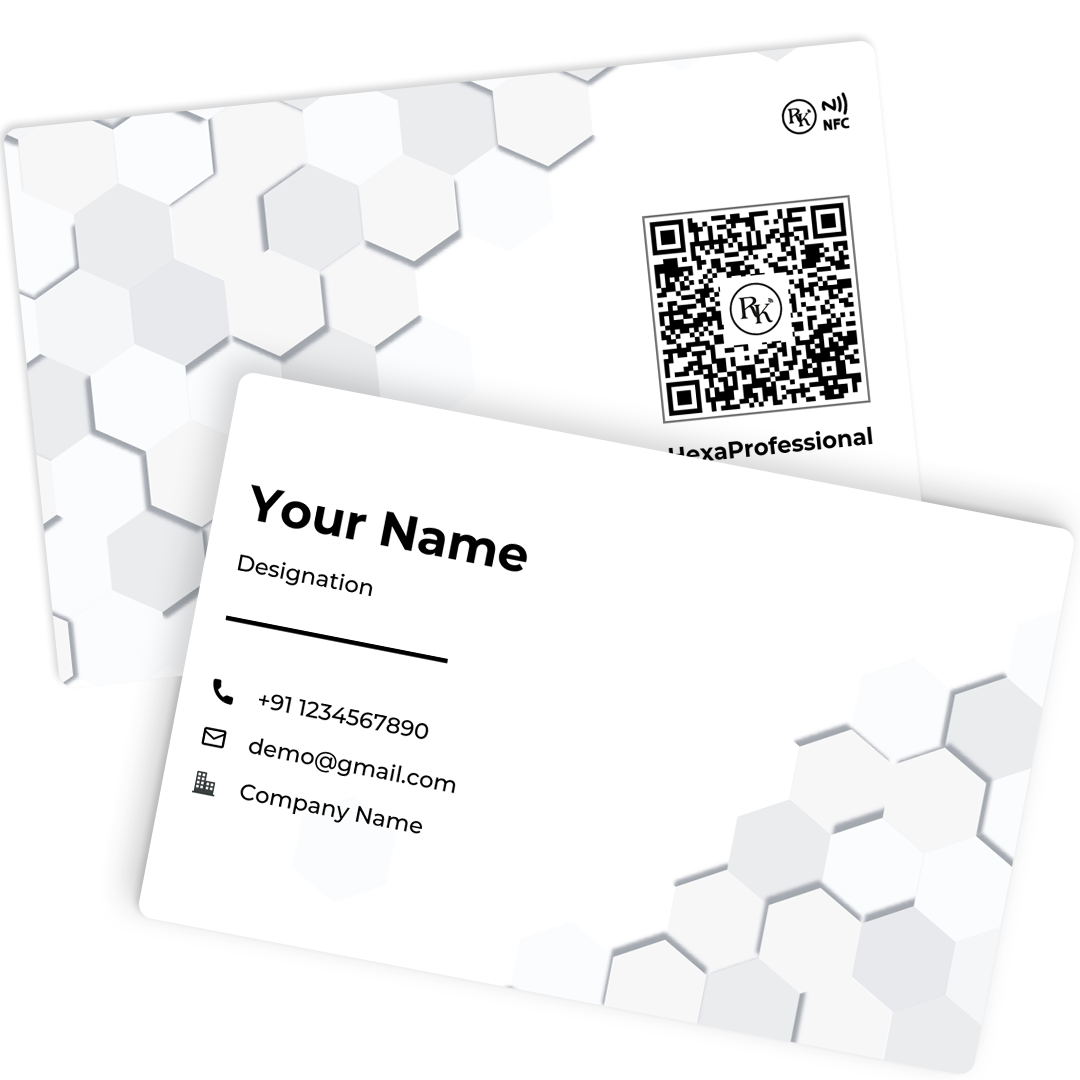Professionals, as well as entrepreneurs, have been using paper visiting cards as a means of networking, and it is still the preferred choice for the majority of people.
Professionals, as well as entrepreneurs, have been using paper visiting cards as a means of networking, and it is still the preferred choice for the majority of people. Business cards play a crucial role in any business, whether it is small-scale or large-scale. Paper business cards are used to share contact information in real-time, and they provide a tangible way to connect with clients or other entrepreneurs. While social media has made it easier to connect with intended clients through platforms such as LinkedIn, handing over a physical business card still holds value. It adds to the decorum of business networking, which is valued more by entrepreneurs than someone stalking them online and directly texting. However, every masterpiece has an expiry date, and the same goes for paper visiting cards. They are not feasible and create problems such as being misplaced or lost, and inability to update details in real-time. Therefore, it is clear that paper visiting cards are becoming obsolete, and there is a smarter alternative to them- NFC digital business cards.
Why Traditional Business Cards are Being Replaced?
Traditional paper business cards are not keeping up with the digital age as technology advances. As people embrace new technological developments, the reasons for replacing paper cards are numerous, making it more likely for people to say "no" to traditional paper business cards.
- Professional design and printing can be costly, making it difficult for businesses with a small budget to create standout business cards.
- Business cards need to be updated frequently, which can lead to high reprinting costs for companies that regularly change their contact information, social media platforms, or hire new employees.
- The small format of business cards limits the amount of information that can be included, and including too much can make the card look cluttered and unprofessional.
- Business owners must carefully select which information to include on their business cards, considering what is necessary and what may be left out.
- Designing business cards on their own can be challenging for many business owners who may not achieve the desired results without professional help.
What’s the Next Big Thing in the Visiting Cards Industry?
With the various disadvantages of using paper business cards, people are transitioning towards a newer technology that is much more efficient and reliable - NFC-based cards. NFC (Near Field Communication) uses proximity technology that allows two devices to connect easily and quickly, enabling seamless data transfer.
NFC-enabled business cards have made networking much easier. You simply tap your physical card onto a nearby smartphone to share all of your contact details, portfolio, and social handles with the other person. NFC cards even facilitate fast payment transactions, making them an all-in-one solution for marketers, entrepreneurs, and professionals. They are also eco-friendly, sustainable, and user-friendly.
The benefits of NFC-based cards are many:
- They make sharing contact information easy and fast.
- They are eco-friendly and sustainable.
- There is no need to worry about misplacing or losing them.
- You do not need to reprint cards each time you need to update your information because you can do so online in real-time.
- With NFC-based cards, you can make a lasting impression with your clients by using smart networking.
Numerous companies are revolutionising the way we connect with others. Innovative firms such as iTappit, Rich Kardz, and v-Cardz are spearheading this change by creating efficient NFC business cards that are not only intelligent but also environmentally friendly. Rich Kardz, for instance, is taking the initiative to plant a tree for each order, meaning that every time someone purchases an NFC card from them, a tree is planted. Companies like Rich Kardz, which are making a significant impact on sustainability, are the ones we should strive to emulate. It is undeniable that it is time to bid farewell to conventional paper cards and embrace the convenience and sustainability of NFC-based cards.











